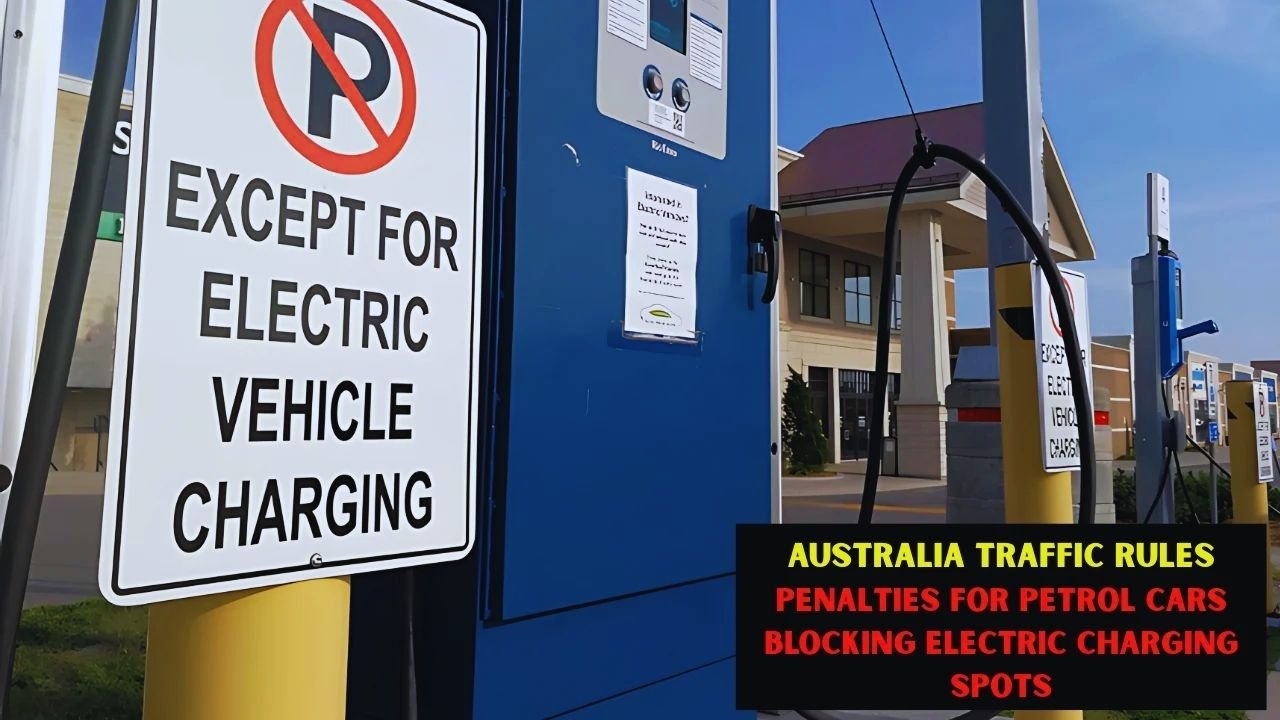New South Wales is taking strong measures to protect electric vehicle (EV) charging infrastructure. From 2025, petrol and diesel vehicles illegally parked in EV charging bays face fines up to $2,200. The legislation aims to prevent “ICEing”—when internal combustion engine (ICE) vehicles occupy charging spots—ensuring EV owners can charge their vehicles without disruption.
Why These Fines Matter
As EV adoption grows, public charging access becomes crucial. Blocking charging bays slows the transition to cleaner transport and creates inconvenience for EV drivers. NSW’s high fines:
- Deter illegal parking in EV charging bays
- Ensure equitable access to charging infrastructure
- Support environmental goals by encouraging EV adoption
Fines Across Australia
| State/Territory | Maximum Fine (AUD) | Notes |
|---|---|---|
| Australian Capital Territory | $3,200 | Highest in Australia |
| Queensland | $2,875 | Significant deterrent |
| New South Wales | $2,200 | Applies to ICE & non-charging EVs |
| Victoria | $369 | Enforced since 2020 |
| South Australia | $250 | Enforced since March 2024 |
NSW ranks among the highest fines nationally, second only to ACT and Queensland, signaling the state’s commitment to EV infrastructure protection.
Legal Framework and Enforcement
Under the Road Rules Road Safety Act 2022, the following rules apply:
- Only electric vehicles actively charging can use EV charging bays
- Parking a non-electric vehicle in a charging bay carries a fine of up to $2,200
- Local councils enforce the rule, ensuring compliance in public spaces
This law applies regardless of whether the vehicle is parked temporarily or for a longer period, emphasizing the priority of EV access.
Broader Implications for EV Adoption
Strict enforcement of charging bay rules has multiple benefits:
- Reduces range anxiety: EV drivers can rely on available charging stations
- Encourages responsible parking habits for all drivers
- Supports environmental goals: Easier EV use reduces greenhouse gas emissions
By maintaining accessible charging infrastructure, NSW strengthens public confidence in EV adoption and sustainable transport.
Quick Tips for Drivers
- Always check for EV charging bay signs before parking
- Never park in a charging bay if your vehicle is not electric or actively charging
- Report misuse of EV bays to local council authorities
FAQs About NSW EV Charging Rules
Q1: What is the maximum fine for blocking an EV charging bay in NSW?
Up to $2,200 for petrol, diesel, or non-charging EVs.
Q2: Who enforces these fines?
Local councils are responsible for enforcement across the state.
Q3: Does this apply to EVs not charging?
Yes, EVs must be actively charging to legally occupy a charging bay.
Q4: How does NSW compare to other states?
NSW fines are among the highest, after ACT ($3,200) and Queensland ($2,875).
Q5: Why is this rule important?
It ensures EV drivers have reliable access to charging stations, supporting the adoption of cleaner vehicles and reducing emissions.
Conclusion
NSW’s strict penalties for ICE vehicles blocking EV charging bays demonstrate the state’s commitment to supporting electric mobility. By protecting charging infrastructure, drivers can enjoy reliable access to EV stations, reducing frustration and encouraging a transition to cleaner, sustainable transport. Following these rules ensures fair use of charging bays, promotes environmental responsibility, and helps Australia move toward a greener future.




